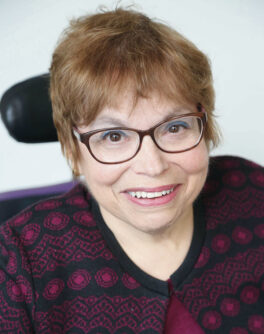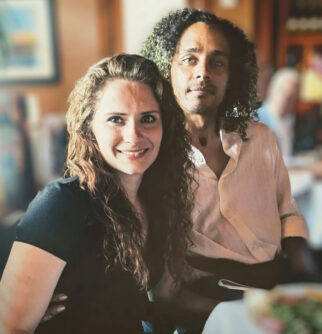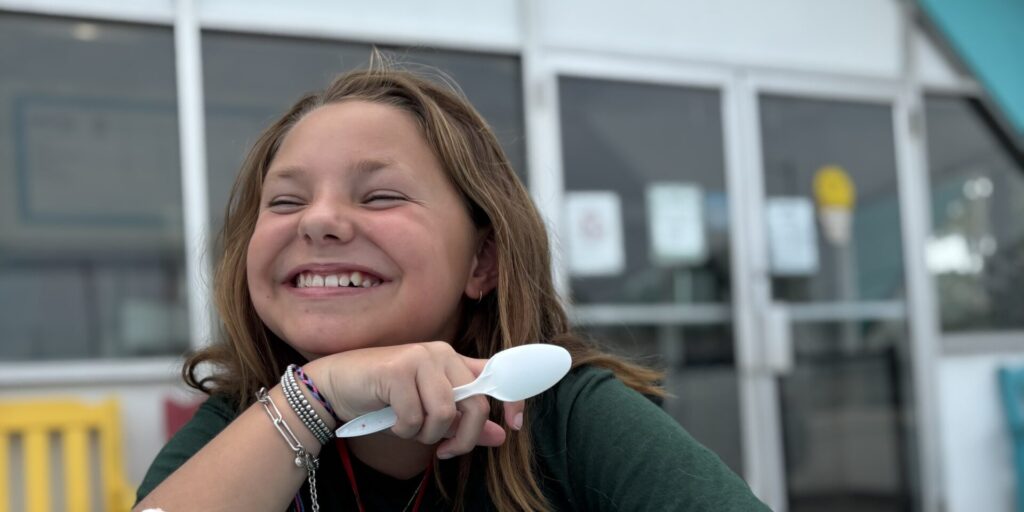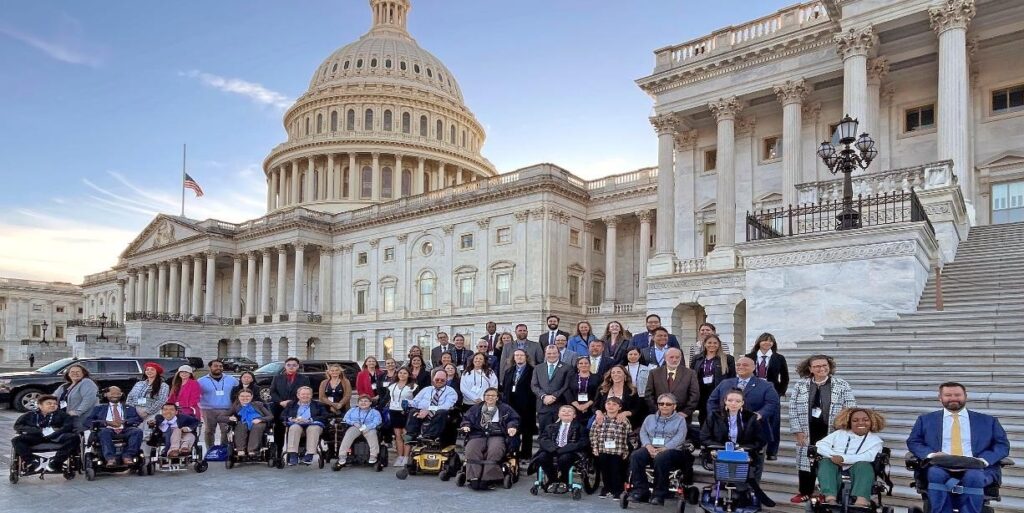![iStock-1201243422 [Converted] Illustration of five square tiles representing natural disasters: tornado, draught, earthquake, thunderstorm, and tsunami wave.](https://mdaquest.org/wp-content/uploads/2022/11/NATURE-Lead-iStock-1201243422-scaled-e1675794484264-1024x512.jpg)
The Best Way to Prepare People With Disabilities and Their Communities for Natural Disasters
By Myrna Traylor | Friday, November 18, 2022
5 Second Summary
Climate-related disasters are on the rise. Preparing yourself and your community before a crisis occurs leads to better outcomes for everybody.
When Hurricane Ian ripped through Florida in September 2022, an estimated 1.2 million people with disabilities were impacted by the devastating winds and flooding, and many of them needed disability-specific aid or accessible services.
Climate-related disasters like Hurricane Ian are becoming more frequent and widespread. And while natural disasters affect everyone in their path, people with disabilities are 2-to-4 times more likely to die or be injured in a disaster, emergency, or crisis than nondisabled people, according to the Partnership for Inclusive Disaster Strategies.

Judith Heumann is a lifelong disability rights advocate.
In this environment, it is more important than ever for those with disabilities and their families, caregivers, and communities to make disaster-preparedness plans and establish connections with local and state responders.
Disability rights activist Judith Heumann has experience in this area, both as a private citizen and a government official. She has served in several influential positions, including as the US State Department’s special advisor on international disability rights from 2010 to 2017.
“This should not be seen as a disability issue alone,” Judith says. Taking active steps to prepare for disasters not only increases your chances of getting through one but also alerts responders and officials in your community to the needs of people with disabilities. Increasing awareness of those needs before a disaster occurs can lead to better outcomes for the whole community.
Preparing communities
Judith advises everyone — disabled and not — to learn how emergency management will occur in their community. “Do you know what jurisdiction you’re in? Do you know what the preparedness plans are? Have you made yourself known to various emergency entities?” she asks.
Fortunately, some organizations are tackling the issue of how disabled people can make sure their needs will be met. The Partnership for Inclusive Disaster Strategies, a disability-led organization focused entirely on disaster preparedness and response, is one such group. Its co-executive directors, Germán Parodi and Shaylin Sluzalis, offer an expert understanding of the history and current state of preparedness as it affects people with different access and functional needs.

Shaylin Sluzalis (left) and Germán Parodi direct the Partnership for Inclusive Disaster Strategies.
“Historically, emergency management has been inherently ableist,” Germán says. “It excludes people with disabilities. It was built in a system of survival of the fittest; you had to get yourself to a distribution point or evacuation center. Maybe 70 years ago that was the understanding, but today, in 2022, we need to respond better to the increase in disasters’ intensity and frequency — not only with tornadoes, hurricanes, and wildfires, but extreme heat that’s been ongoing across the country.”
“It’s not just government, but the different relief organizations who likewise are not knowledgeable about preparedness inclusive of disabled people,” Judith says. This makes it especially important to speak up and make the disability community’s needs known before a disaster occurs.
4 actions you can take now:
- Educate yourself about potential hazards in your area using the Federal Emergency Management Agency’s (FEMA’s) National Risk Index.
- Learn what services your local emergency management agency provides and alert them about services you or others in your community need.
- Ask your workplaces and schools about their emergency plans and make sure those plans include people with disabilities.
- Find out if your state or city offers an emergency registry to self-identify as someone who needs special assistance in the event of an emergency. Ask your emergency management office or local fire station how to register.
Importantly, Shaylin and Germán note that emergency registries are most effective in the event of a personal emergency, such as a house fire, but are limited in the case of a large-scale disaster when resources are stretched. They caution that you should not count on a registry to mean that responders are aware of your needs. Be proactive about seeking the help you need in an emergency.
Pushing for improvement
In many states, emergency management departments are now listening when community members explain their differing needs regarding disaster preparedness and response. “There is even a term in use for it: ‘access and functional needs,’” Germán says. “In the emergency response world, that term covers not only people with disabilities, but older adults, children, people with low English proficiency, pregnant people — what some might call vulnerable communities.”
After years of advocacy on these issues by disability-rights advocates, things are getting better.
“We see improvement in areas where there is a position within emergency management agencies that is specific to the needs of people with disabilities,” Shaylin says. “Access and functional needs coordinators within emergency management agencies make sure that the agency is being inclusive in planning, mitigation, and response and recovery. They act as liaisons with the disability community and push their needs up the chain and throughout the agency.”
Germán offers an example of how, when a state is properly engaged on this issue, significant improvements are achievable. “We can point to the 2021 Marshall Fire in Colorado where there is an excellent access and functional needs coordinator who quickly engaged the disability community-led organizations, Spanish-speaking residents, and people on tribal lands to make sure their needs were being identified and sent up to emergency management operations as quickly as possible,” he says. “Then the disability community organizations themselves were engaged and the immediacy in response was quicker than we’ve ever seen before.”
The Partnership for Inclusive Disaster Strategies engages with emergency managers across the nation and generally finds they are open to discussing the needs of people with disabilities.
“Emergency response starts at the local level,” Germán says. “Immersing ourselves as people with disabilities in emergency management conversations and contacting local emergency management agencies is vital.”
Myrna Traylor is a writer and editor for Quest.
Emergency Checklist for People With Neuromuscular Diseases
- Create a disaster supply kit and escape plan.
- Prepare a list of your medications.
- Keep a list of the style and serial numbers of your medical devices.
- Send copies of important documents to an out-of-town contact person in case the originals are lost or destroyed in a disaster. Or save digital copies in the cloud so you can access them from anywhere.
- Ask your local emergency management office which shelters are prepared to accept people with disabilities.
- Have a pet care plan. Shelters don’t always accept pets, but they must accept service animals. Contact your local animal shelter.
- Have an extra battery for a motorized wheelchair or scooter. Know how to recharge the battery.
- Have a patch kit, can of seal-in-air product, and inner tubes for a mobility device with inflatable tires.
- Have a lightweight manual wheelchair for backup.
- Have a converter for your communication device.
- Pack a low-tech communication board and preprinted key phrases in your disaster kit.
- Have an adapter kit for your ventilator so it can be plugged into your car or a marine battery.
- Contact your electricity provider to see if they offer a “priority reconnection service” that will help ensure your power is restored as soon as possible.
Next Steps and Useful Resources
- Check out MDA’s list of emergency resources tailored to the neuromuscular disease community.
- Sign up to receive alerts of approaching weather-related and other emergencies.
- Visit the US Department of Homeland Security’s emergency preparedness website for individuals with disabilities.
- The Partnership for Inclusive Disaster Strategies runs a hotline to provide information, referrals, and guidance to individuals with disabilities and people and organizations assisting them. Call 800-626-4959.
Disclaimer: No content on this site should ever be used as a substitute for direct medical advice from your doctor or other qualified clinician.




